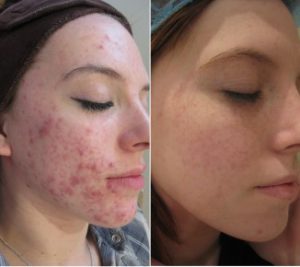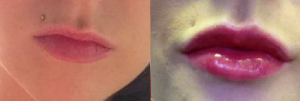Skincare in your twenties
DERMATOLOGY
It’s never too early to start looking after your skin. And, while you might not feel ready to start thinking about getting older, your twenties are actually the best point to start taking skincare seriously.
It can be a difficult time for some of us; caught halfway between skin that’s starting to show signs of soft wrinkles and dullness, and the ever-pertinent cysts and redness of acne. However, it is also the opportune period to take back control of your epidermis, with early investment bringing not only immediate effects but fantastic long-term results too.
Adult acne treatment
Just when you thought you were past the oily T-zone and random spots that adolescent kindly gifted you (where did they all come from?!), you’re suddenly faced with more spots; perhaps more aggressive and perhaps even more annoying.
Adult acne is a problem for roughly one in 10 of us over the age of 25 (many of whom never suffered as a teenager), and 80% of those burdened with it are female. This is because hormones are a huge trigger for the condition, which begins with tiny glands in our skin becoming blocked and contaminated. Surges in hormones can cause our skin to produce too much of its natural lubricator, sebum, which mixes with dead skin cells causing the blockage. Normally harmless bacteria that lives on our skin then turns these blocked pores into the spots and redness we associate with acne.
Fortunately treatment for the condition nowadays is relatively easy, pain-free and quick. You need to invest in a good skincare regime for a start – including (shock horror)a moisturiser! While it might seem odd to hydrate already oily skin, dryness is the biggest trigger in the production of excess sebum and starving it of moisture is normally counter-productive, forcing it to produce more.
If you’re suffering in spite of a thorough cleansing and moisturising regime, there are treatment methods to get rid of the condition for good. One of the most innovative and effective is a non-invasive laser method called N-Lite.

The treatment, which is usually performed in courses of three, works by destroying the spot-causing bacteria – meaning your skin is left clear with less chance of blemishes in the future. Each session normally lasts around 30 minutes and the full results normally last at least 10 months, after which you may require top-up treatments to keep your results.
Find out more about acne treatments.
Glycolic peels
During our twenties, and particularly from around 25 onward, skin can start to lose its glow and become duller. This is because new collagen production decreases at the same time that collagen reserves start to deplete.
Light glycolic peels are one of the best treatments for those who experience an early loss of glow, as well as those battling acne, blocked pores, and even early signs of ageing. They work like an intensive exfoliating process, removing dead skin cells and dirt from the surface of the skin to reveal new, healthy layers of skin underneath. Peels will normally take less than 30 minutes to perform, with no downtime needed afterwards. Depending on your skin and the type of peel you have, you may experience some (literal) skin peeling in the days that follow, though your therapist will always advise on the likelihood of this occurring and how to control it.
Find out more about chemical peels.
But how about preventing collagen production slowing down altogether? Well, that leads us neatly on to our next point…
SPF…every day!

It’s not quite summer…it’s the UK…it’s raining. While slapping on some high factor sunscreen might be the furthest thing from your mind as you wrap your coat around you and brace the high winds, it’s actually most dermatologists’ number one essential when it comes to looking after your skin – regardless of your age.
Not only does it protect against the nasty side of the sun (preventing everything from skin cancer to sun spots), it’s actually one of the most effective anti-ageing tools you can think of. The sun can form oxidants on the skin that damage and break down collagen fibers. A good sunscreen can help prevent this and actually slow down ageing on our skin. We recommend applying around 20 minutes before you go outside and topping up throughout the day.
A number of our clinics stock high-level, dermatologist approved sunscreens. Find your nearest.
Non-invasive treatments
Non-invasive rejuvenation treatments like wrinkle injections and fillers are something a lot of us start to consider as we notice signs of wear on the face. At The Private Clinic, we can’t say when the best time for you to look at these methods is as it’s always an entirely individual consideration however, if you’re unsure, we’d advise meeting with one of our team to discuss and take a look at your options.

There’s a multitude of other non-invasive treatments also available for various skin complaints, designed to help with everything from dullness in the skin, to signs of damage and scarring.
IPL photorejuvenation is an extremely popular laser treatment for many of our patients in their twenties. It smooths out uneven tone and texture, and is commonly used to treat sun damage and irregularities, as well as conditions like Rosacea. Find out more about IPL.
Summary
Your biggest focus on skincare during your twenties should be prevention and preparation. Everyone’s skin is different so therefore your concerns won’t be exactly the same as somebody else; some of us still find our biggest battle to be the signs of acne, while others might be battling fine lines or damaged skin – then there’s the lucky few who are gifted with flawless skin. Whatever, your focus, always work with the right professionals and invest in a proper at-home skincare regime (including SPF) to help treat any complains now, and prevent problems later.
For a full list of skin rejuvenation treatments, visit our website.
Or to find out more about the skin treatments we have available, please call 03339209135 or use our online contact form to request a call back.
We have skin clinics located across the UK in London Harley Street, Birmingham, Bristol, Buckinghamshire, Leeds, Manchester and Northampton.




